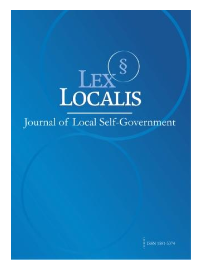A CONCEPTUAL MODEL FOR E-GOVERNMENT USE: FACTORS, THEORETICAL INTEGRATION, AND HYPOTHESES IN THE SAUDI ARABIAN CONTEXT
DOI:
https://doi.org/10.52152/Povzetek
This study presents a comprehensive conceptual model for E-Government use, grounded in an extensive literature review and validated through expert consultation. An initial pool of 48 influencing factors was systematically extracted from peer-reviewed publications between 2018 and the present. These factors were reduced to 23 through frequency analysis and empirical support, and subsequently refined to 12 key variables via expert ranking. The model integrates the Unified Theory of Acceptance and Use of Technology (UTAUT) with the Technology-Organization-Environment (TOE) framework, supplemented by trust as a mediating variable. The factors are categorized into technological, people- related, and environmental dimensions, each hypothesized to influence behavioral intention toward E- Government adoption in Saudi Arabia. The study provides operational definitions and formulates testable hypotheses, offering a theoretically robust and contextually relevant framework to guide empirical validation and policy formulation.
Prenosi
Objavljeno
Številka
Rubrika
Licenca
Avtorske pravice (c) 2025 Lex localis - Journal of Local Self-Government

To delo je licencirano pod Creative Commons Priznanje avtorstva-Nekomercialno-Brez predelav 4.0 mednarodno licenco.








